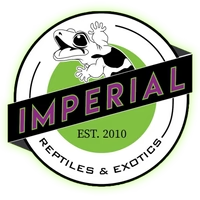Isopod and Spring Tail general care for multiple species. Additional research may apply.
Isopods and Spring Tails for Sale
Meet the Isopod, a Terrariums best friend. Isopods can make great pets for a variety of reasons. Whether you are captivated by their beautiful colors, need a low maintenance pet for your kids, or you just love to collect them all – Isopods and Spring Tails got you covered!! Over the past 5 years there has been a big increase in the popularity of Bioactive enclosures.
What does Bioactive mean? A bioactive enclosure is purposely designed with living elements that work together within your tank. Live plants and microfauna, like the isopod, are all key inhabitants in a bioactive terrarium, creating a mini living ecosystem.
Caring for your Isopods and Spring Tails
Isopod and Springtail care is generally the same for all species with a few differences. The enclosure can be a glass terrarium or plastic tub, but make sure you have good ventilation. This can be achieved with holes in the plastic tub, or stainless steel vents. You do not want to mix different species of isopods as they generally do better when kept in a colony style with the same species. Terrestrial isopods prefer a low lit area, so place the enclosure somewhere where it will receive ambient lighting. Different species of isopods will have different tolerance to temperatures but generally speaking you can safely keep your isopods at 69-74 degrees Fahrenheit. Isopods need a humid environment to stay alive, daily miting is recommended. You want the enclosure to be able to dry out and prevent mold growth, but the substrate should still be kept moist.
Isopods and Spring Tails do well on a variety of substrates like “ABG mixes”, and coconut soil mixed with sphagnum moss are most common. You want 1-2 inches of “soil” topped with leaf litter and sphagnum moss. Live Oak and Seagrapes are great leaf litter choices!!
Isopods and Springtails eat decaying wood, dead leaves, and all organic material making them a great clean up crew. They do best on a varied diet so you want to supplement their diet with a high protein food like fish flakes or krill and add carrots, potato, or cucumber for extra variety. Adding a cuttlebone for supplemental calcium is highly recommended.
Isopods as pets?
Should I handle my isopods?
Generally speaking, no. They are small and fragile so you risk injuring them greatly. Carefully handle isopods when performing cage maintenance to avoid any loss.
Popular Isopods as Pets – With names like these, you can see why they are highly collectible!
Dairy Cow Isopods, Little Sea Isopods, Rubber Ducky Isopods, Magic Potion Isopods, Scaber Isopods
Click here to – Check out this blog for additional info!
